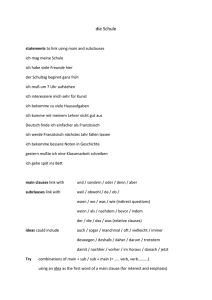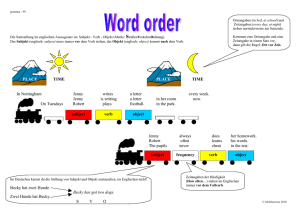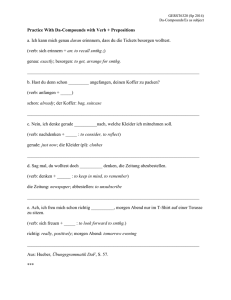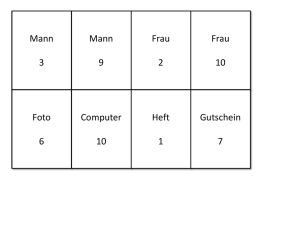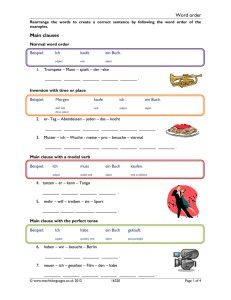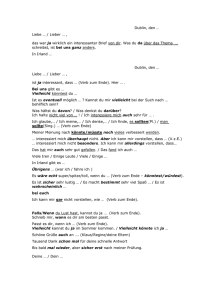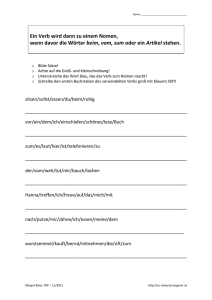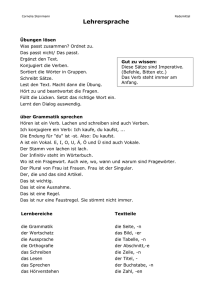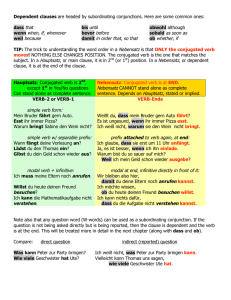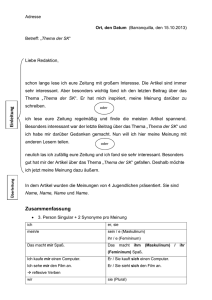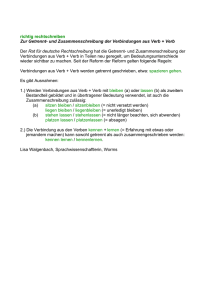TMP Ich fahre übermorgen mit dem Zug nach Berlin.
Werbung
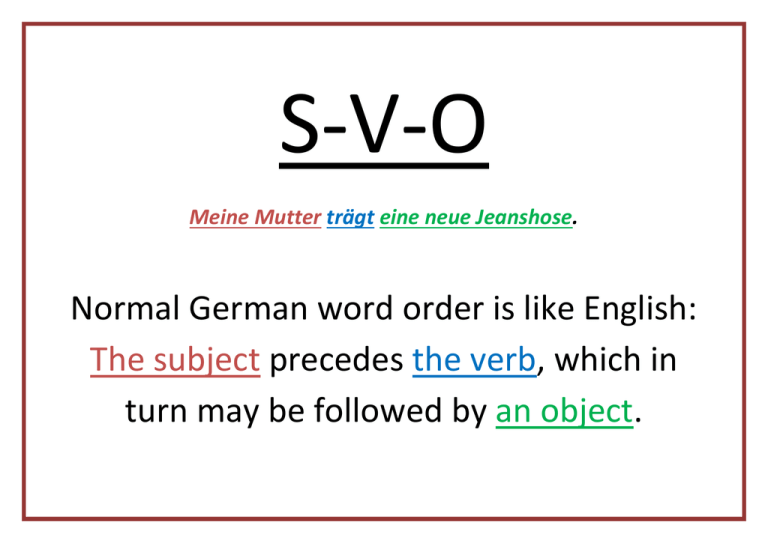
S-V-O Meine Mutter trägt eine neue Jeanshose. Normal German word order is like English: The subject precedes the verb, which in turn may be followed by an object. T-M-P Ich fahre übermorgen mit dem Zug nach Berlin. Time elements (when?) always come before with whom or by what means (how?) and location (where?) is last. S-V INVERSION Normalerweise mag ich keine Käse essen. Wenn es regnet, bleibe ich zu Hause. An adverbial at the start of a phrase makes the subject and verb switch places. After a subordinate clause there is a comma, followed by the verb and subject of the main clause. VERB AT END Ich werde einkaufen gehen, weil ich neue Schuhe brauche. Ich denke, dass ich morgen abfahren muss. In subordinate clauses after certain conjunctions the main verb often goes to the end of the clause. Infinitives also go to the end. If there is an infinitive and a main verb in a subordinate clause, the main verb is at the very end. NEGATION Ich gehe nicht mit dir. Ich mache das nie. Negative words (nicht, niemand, etc.) normally go after the main verb or after the accusative object (if there is one). AUCH = also, too Auch finde ich Deutsch schwierig. Ich finde Spanisch auch schwierig. If you use ‘auch’ at the start of a sentence, the verb comes before the subject, or else ‘auch’ is placed after the accusative object. D BEFORE A Ich gebe dir das Buch. In phrases with an accusative and a dative object. The dative comes first. Expanded Epithet Der gutaussehende, junge, in der Straße singende Mann ist ein Freund von mir. In stylised German it is common to separate the article from the noun with many descriptive elements, where English would often use separate clauses. Don’t forget adjective endings though! Brackets Ich möchte morgen mit dir nach Deutschland fahren. Ich werde meine Hausaufgaben machen. Das Auto wird am Samstag repariert. Most information in a phrase usually comes between the predicate and the infinitive or past participle. THE GERMAN WORD ORDER BOOK
